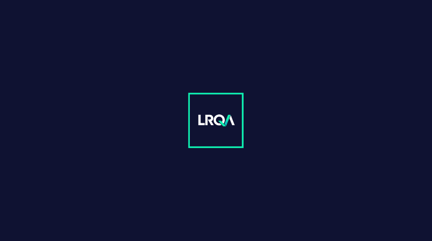FSVP Services to Ensure Supplier FSMA Compliance.
The US FDA issued FSMA Final Rule on Foreign Supplier Verification Programs (FSVP) for Importers of Food for Human and Animals is now final.
FSMA Foreign Supplier Verification Program (FSVP) Service
Overview
The US FDA issued FSMA Final Rule on Foreign Supplier Verification Programs (FSVP) for Importers of Food for Human and Animals is now final. For the purposes of FSVP, an importer is the U.S. owner or consignee of a food offered for import into the United States. How are you ensuring your suppliers are in compliance? LRQA's foreign supplier verification services can evaluate hazard- and risk specific criteria.
As stated by the US FDA, it is a program that importers covered by the Rule must have in place to verify that their foreign suppliers are producing food in a manner that meets the same level of public health protection as the preventive controls or produce safety regulations and ensure the supplier’s food is not adulterated nor misbranded with respect to allergen labeling.
What are the benefits?
- Determining known or reasonable foreseeable hazards with each food
- Evaluating the risk posed by food, based on the hazard analysis, and the foreign supplier’s performance
- Using that evaluation of risk and the supplier’s performance to approve suppliers and determine appropriate supplier verification activities
- Conducting supplier verification activities
- Conducting corrective actions
- Establishing and following written procedures to ensure food is imported only from foreign suppliers approved based on evaluation of risk and the supplier’s performance
- Developing, maintaining and following a FSVP for each food brought into the United States and for the foreign supplier of that food
- Evaluating risks posed by imported food and supplier performance at least every 3 years, or when new information comes to light about a potential hazard or the foreign supplier’s performance.
Need help with FSVP?
LRQA provides Foreign Supplier Verification services to help assure that your ability to successfully manage your supplier’s FSMA compliance is seamless and effective – throughout your organization and your supply chain.
- Step 1: Establish & Prioritize Objectives and Evaluate Supply Chain Risks
- Step 2: Identify Approach, Criteria, Methodology & Reporting
- Step 3: Assessment & Training
- Step 4: KPI Reporting & Action
Why choose LRQA?
- Tailored to your requirements
- Provide impartiality when you need it most
- Offer an opportunity to assess your food safety and supply chain risks and FSMA requirements worldwide
- Offer efficiency and lets you focus on managing your business
Contact us to learn more about FSMA foreign supplier facility certification.










